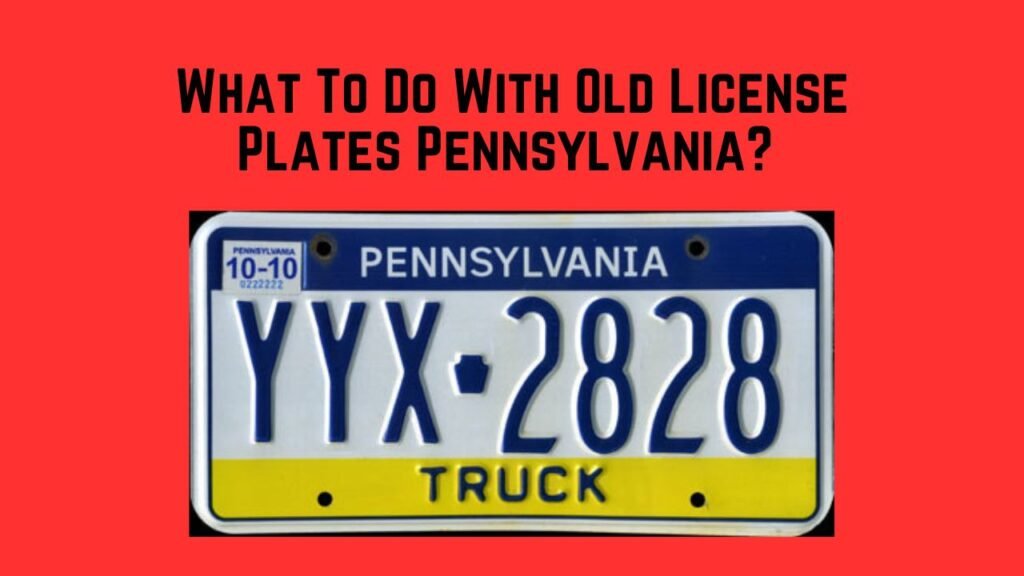What Happens If You Don’t Return License Plates In VA? In Virginia, failing to return license plates can result in fines, registration complications, and potential tax assessments.
When you sell your car, move out of state, or simply retire a vehicle, the last thing on your mind might be what to do with the license plates.
However, in Virginia, this small piece of metal holds significant legal and financial importance. License plates are tied directly to your vehicle’s registration and personal property taxes.
Failing to return them when they are no longer needed can lead to severe consequences, including fines, tax assessments, and even legal liabilities.
This guide will help you understand why returning license plates is crucial and what could happen if you don’t.
Contents
Why You May Need to Return License Plates
1. Selling or Trading Your Vehicle
One of the most common reasons for returning license plates is selling or trading a vehicle. In Virginia, license plates do not transfer automatically with the vehicle.
They remain your responsibility. If you fail to return or transfer them, you might find yourself unexpectedly involved in issues like unpaid parking tickets or violations committed by the new owner.
These could be linked back to you, leading to unnecessary complications. [What Happens If You Don’t Return License Plates In VA?]
Moreover, the DMV requires you to either return your plates or transfer them to another vehicle in your name. This ensures that their system accurately reflects the status of the vehicle and its owner.
2. Relocating Out of State
If you’re moving out of Virginia, it’s important to surrender your Virginia plates. This not only cancels your vehicle’s registration in the state but also stops the local government from billing you for personal property taxes.
Virginia residents are subject to these taxes annually based on the vehicle’s value, and failure to notify the DMV of your move can result in continued assessments. [What Happens If You Don’t Return License Plates In VA?]
Imagine moving to another state only to discover that you’re still being charged for a car you no longer operate in Virginia. Returning your plates is a simple step that can prevent this scenario.
3. Vehicle No Longer in Use
Whether your car is totaled, permanently retired, or sitting unused in your garage, you are still responsible for the plates unless they are returned.
The DMV needs to be informed to update its records, ensuring you’re not billed for registration renewals or personal property taxes. [What Happens If You Don’t Return License Plates In VA?]
Additionally, keeping old plates without properly deactivating them could lead to misuse, which might be traced back to you.
Consequences of Not Returning License Plates
1. Fines and Penalties
Failure to return your license plates can result in financial penalties. If the DMV detects that a vehicle tied to your plates lacks insurance or isn’t properly registered, you could face fines.
Virginia takes vehicle registration seriously to ensure road safety and compliance with insurance laws. [What Happens If You Don’t Return License Plates In VA?]
2. Registration Issues
When you don’t return your plates, the DMV’s system may flag your account. This can create complications when you try to register another vehicle or renew an existing registration.
Imagine purchasing a new car only to find out you can’t register it because of unresolved issues with old plates. It’s an avoidable headache that emphasizes the importance of proper plate management.
3. Tax Implications
Virginia residents are subject to personal property taxes on their vehicles. [What Happens If You Don’t Return License Plates In VA?]
If the DMV doesn’t receive your plates or an official notification that your vehicle is no longer in use, you could continue receiving tax bills.
This could lead to disputes with local tax authorities, additional penalties, and even debt collections if the taxes remain unpaid. Returning your plates ensures that your tax obligations are accurate and up to date.
It’s particularly important for those moving out of state or selling their vehicles, as it avoids unnecessary taxation on a vehicle you no longer own or operate.
4. Legal Liabilities
One of the most severe consequences of not returning license plates is the potential for legal liability. [What Happens If You Don’t Return License Plates In VA?]
If someone else uses your unreturned plates—whether through theft, fraud, or oversight—you could be implicated in any violations, fines, or criminal activities associated with those plates.
For instance, if your old plates are used on a stolen vehicle or in the commission of a crime, law enforcement may initially trace the plates back to you.
Clearing your name in such situations can be a lengthy and stressful process. By promptly returning your plates, you minimize the risk of such complications.
How to Properly Return License Plates in Virginia
1. Visit a DMV Office
The most direct way to return your license plates is to visit a DMV office in person. You can hand over the plates to a DMV representative, who will immediately update your vehicle’s status in the system.
Make sure to ask for a receipt as proof of surrender. This documentation could be crucial if there are any disputes later. [What Happens If You Don’t Return License Plates In VA?]
2. Mailing Option
If visiting a DMV office isn’t convenient, you can mail your plates to the DMV’s main office. Include a note with your name, vehicle information, and a request to cancel your registration.
It’s advisable to use certified mail so you have a record of the return. Retain your mailing receipt as evidence of your compliance.
3. Online Notification
Virginia’s DMV also offers an online tool for reporting the cancellation of license plates. [What Happens If You Don’t Return License Plates In VA?]
While this doesn’t eliminate the need to physically return the plates, it provides an immediate record of your intent to cancel the registration.
This can be particularly useful in avoiding fines or penalties while the plates are in transit.
Tips for Avoiding Issues
- Keep Documentation: Whether you return your plates in person or by mail, always obtain a receipt or proof of the transaction. This serves as evidence that you fulfilled your obligation.
- Notify the DMV Promptly: As soon as you sell, trade, or stop using your vehicle, inform the DMV. Prompt notification helps avoid fines, penalties, and tax disputes. [What Happens If You Don’t Return License Plates In VA?]
- Update Insurance Providers: If you’re canceling your vehicle’s insurance, ensure the DMV is also informed. Operating a vehicle without insurance is illegal in Virginia, and failing to notify the DMV could result in fines.
See Also: How Do You Report A Stolen License Plate?
Final Verdict
Returning your license plates in Virginia is a simple yet crucial step to avoid a host of potential issues. [What Happens If You Don’t Return License Plates In VA?]
From financial penalties and tax assessments to legal liabilities, the risks of not returning your plates far outweigh the minimal effort required to do so.
Whether you’re selling your car, moving out of state, or retiring your vehicle, make sure to follow the proper procedures to protect yourself from future complications.
FAQs
What happens if someone uses my old plates?
If someone else uses your unreturned plates and commits a violation, you could be held responsible. Properly surrendering your plates prevents misuse and protects you from legal liabilities.
Can I transfer my plates to another vehicle?
Yes, Virginia allows you to transfer your license plates to a new vehicle in your name. This requires notifying the DMV and paying a small transfer fee. [What Happens If You Don’t Return License Plates In VA?]
How long do I have to return plates after selling my car?
It’s best to return or transfer your plates as soon as possible after selling your vehicle. Delaying this process could result in fines or continued tax assessments.
Do I need to return plates if I cancel my insurance?
Yes, if your vehicle becomes uninsured, the DMV requires you to return the plates. Operating or owning an uninsured vehicle in Virginia is illegal and can lead to fines.
What should I do if I lose my license plates?
If your plates are lost or stolen, report the loss to the DMV immediately. You may need to complete a form and possibly pay a fee for replacement plates.
Conclusion: What Happens If You Don’t Return License Plates In VA?
Returning your license plates when they’re no longer in use is a small but essential step in Virginia.
It ensures your records are updated, prevents unnecessary fines and taxes, and protects you from potential legal liabilities.
By taking the time to properly surrender your plates, you can avoid a host of complications and enjoy peace of mind.

I’m Karsyn Marsh, a blogger from a small village in Texas. I enjoy writing about many topics, and right now, I’m focused on license plates. I share helpful information and facts on LicensePlateFacts.com.



